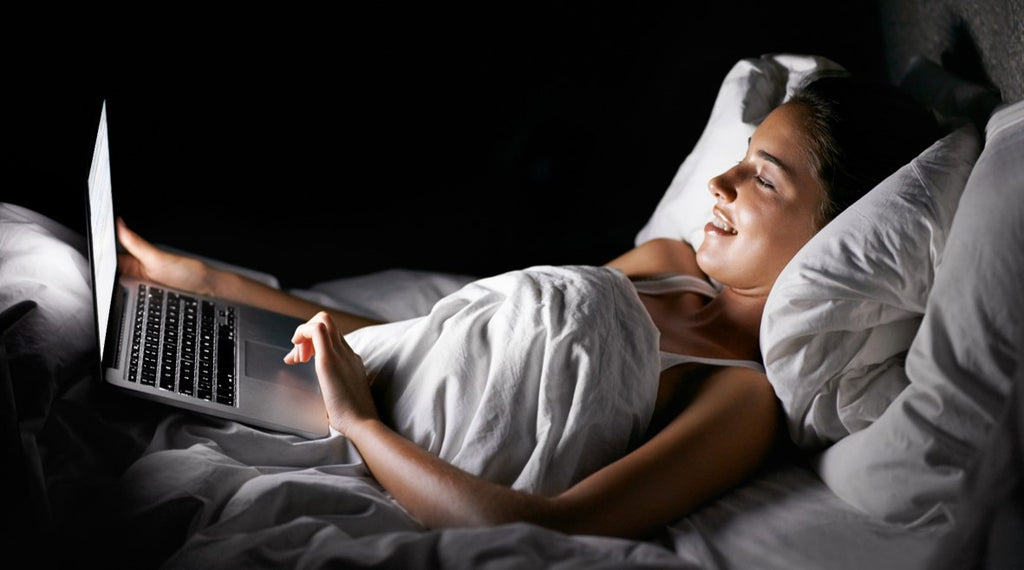- Home
- SHOP ▾
- Store Locator
- Media
- Product Information ▾
- Our Associations ▾
- Warranties ▾
- Advice ▾
- Blog

Whether it is watching TV, playing video games, scrolling through social media or checking emails, electronic devices are a big part of our lifestyle and hard to put down when bedtime approaches.
Although the effects vary between people ‘screen time’ before bed has been shown to impact both our ability to fall asleep and the quality of our sleep.
"Studies have tested the effects of bright tablets (e.g. ipads) and laptop screens for up to 5 hours before bed. It seems that the natural evening rise in melatonin (a hormone that makes us ready for sleep) is not affected by 1 hour of bright screen light, but it is after 1.5 hours. Thus after 1.5 hours of technology use in the evening people report feeling less sleepy. They also do better on mental performance tests and their brainwaves suggest increased alertness. Repeated use of a bright screen over 5 days can delay the body clock by 1.5 hours. This means you consistently want to go to bed later and sleep in longer. This can be a real problem when you need to get up at a set time in the morning for school or work." - sleephealthfoundation.org.au
It may be difficult at first, but once you have made a conscious change it will become habit and part of your everyday routine.
Sleep Well, Live Well